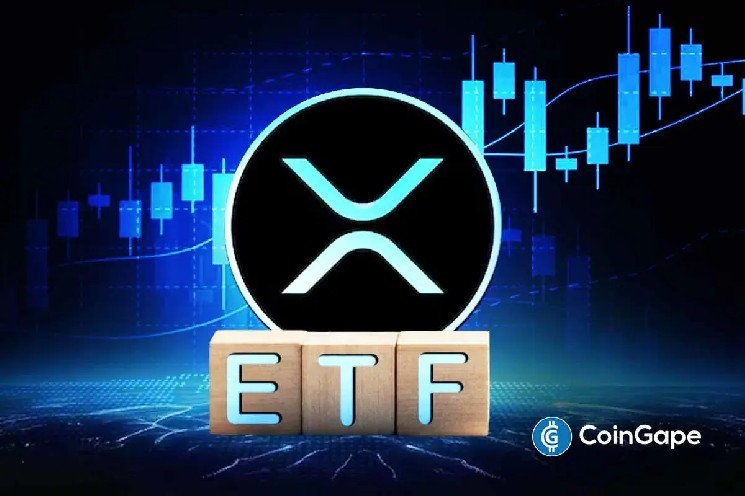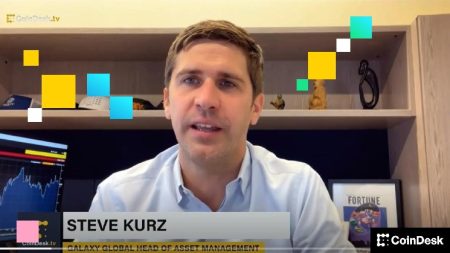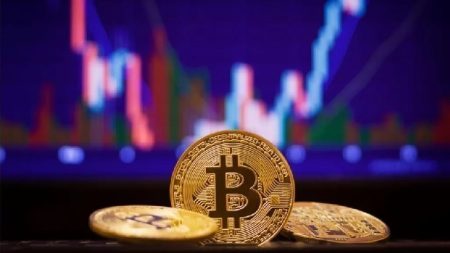XRP ETF Market Potential Grows Following Ripple-SEC Settlement
Experts Predict Strong Investor Appetite for XRP Exchange-Traded Funds as Regulatory Landscape Evolves
In the wake of the landmark resolution between Ripple and the Securities and Exchange Commission (SEC), the financial industry has begun seriously considering the viability and potential demand for XRP exchange-traded funds (ETFs). This development marks a significant shift in the cryptocurrency investment landscape, with industry experts now forecasting substantial market interest in such financial products. The settlement, which finally brought clarity to XRP’s regulatory status, has opened doors for institutional investment vehicles that were previously considered too legally precarious to pursue.
Nate Geraci, President of NovaDius Wealth Management and the respected host of the ETF Prime Podcast, has emerged as a leading voice in this conversation, expressing strong confidence that XRP ETFs would attract considerable organic demand from investors. “The resolution of the Ripple case represents a watershed moment for cryptocurrency investment products,” Geraci explained in a recent analysis. “With the regulatory cloud lifted, we’re seeing institutional investors reevaluate XRP as a potential portfolio component, particularly through the familiar and regulated vehicle of an ETF.” This assessment comes at a time when the financial sector is experiencing unprecedented interest in cryptocurrency-based investment products, with bitcoin and ethereum ETFs already demonstrating the market’s appetite for regulated crypto exposure.
The potential introduction of XRP ETFs would represent a significant evolution in cryptocurrency accessibility for traditional investors. Exchange-traded funds offer several advantages that direct cryptocurrency holdings cannot match, including simplified tax reporting, elimination of digital wallet security concerns, and integration with existing brokerage platforms. For institutional investors bound by strict investment guidelines, ETFs provide a compliant pathway to gain exposure to the cryptocurrency market. “What we’re seeing is the maturation of cryptocurrency as an asset class,” noted financial analyst Sophia Martinez of Global Investment Partners. “XRP ETFs would allow pension funds, endowments, and other institutional investors to participate in this market without violating their investment mandates or taking on unacceptable operational risks.”
The resolution of the SEC lawsuit has removed what was arguably the primary obstacle to XRP ETF development. Prior to the settlement, financial institutions were understandably hesitant to develop products based on an asset with uncertain regulatory status. “No reputable ETF issuer would risk launching a product that might be deemed illegal shortly after its introduction,” explained regulatory compliance expert Jonathan Wei. “The closure of the Ripple case provides the certainty that issuers need to move forward with product development.” Industry insiders suggest that several major asset management firms have already begun preliminary work on XRP ETF offerings, though most remain cautious about making public announcements until further regulatory guidance emerges.
Market analysts are closely monitoring potential timelines for XRP ETF approvals, with most expecting a deliberate approach from both issuers and regulators. The SEC’s evolving stance on cryptocurrency ETFs will likely influence the speed and conditions under which XRP products might be approved. “We’re still in the early stages of this process,” cautioned regulatory attorney Rachel Goldstein. “While the Ripple settlement was crucial, the SEC will likely establish specific requirements for XRP ETFs that address market manipulation concerns, custody solutions, and investor protection measures.” Historical precedent suggests a methodical regulatory review process, with the SEC typically requiring multiple application revisions before granting approval for novel ETF products. Nevertheless, the existing frameworks established for bitcoin and ethereum ETFs may accelerate this timeline.
The implications of XRP ETFs extend beyond investor access to potentially influence XRP’s market position and price dynamics. Increased institutional investment could stabilize XRP’s historically volatile price movements while enhancing its liquidity and market depth. “ETFs represent a significant maturation milestone for any asset,” observed cryptocurrency market strategist Michael Chen. “We’ve seen how institutional adoption has transformed bitcoin’s market behavior, and similar effects could be expected for XRP.” While predictions vary widely, most analysts agree that successful ETF launches would likely drive substantial new capital into the XRP ecosystem, potentially strengthening its position among the top cryptocurrencies by market capitalization. As the industry awaits further developments, the conversation around XRP ETFs continues to highlight the evolving relationship between traditional finance and the cryptocurrency sector, with regulatory clarity increasingly serving as the bridge between these once-separate worlds.
The Path Forward: Regulatory Considerations and Market Readiness
The aftermath of the Ripple-SEC settlement has created a complex regulatory landscape that potential XRP ETF issuers must carefully navigate. While the major legal hurdle has been cleared, the SEC maintains strict standards for ETF approval, particularly for products based on relatively new asset classes. Investment management firms interested in launching XRP ETFs will need to address concerns regarding market surveillance, manipulation prevention, and accurate price discovery mechanisms. These requirements stem from the SEC’s mandate to protect investors while maintaining fair and efficient markets.
“The regulatory framework for cryptocurrency ETFs continues to evolve,” explained Dr. Eleanor Ramirez, Professor of Financial Regulation at Columbia University. “The SEC has shown increasing comfort with cryptocurrency-based investment products, but each new asset brings unique considerations. XRP’s international usage as a payment system token adds complexity to the regulatory analysis that wasn’t present in bitcoin ETF applications.” This distinct use case may require specialized disclosure requirements and risk assessments before regulatory approval is granted.
The technical infrastructure supporting XRP ETFs represents another critical development area. Custody solutions, pricing methodologies, and liquidity provisions must meet institutional standards before major issuers will proceed with product launches. Several specialized cryptocurrency custody firms have already begun enhancing their XRP-specific capabilities in anticipation of institutional demand. “We’ve been expanding our institutional custody services for XRP significantly over the past quarter,” confirmed Thomas Wilson, Chief Technology Officer at Digital Asset Custody Solutions. “The security and compliance requirements for supporting an ETF are substantially more rigorous than for individual investors, requiring multi-layer security protocols and comprehensive insurance coverage.”
Market readiness for XRP ETFs appears strong, with preliminary surveys indicating substantial interest from both retail and institutional investors. A recent industry poll conducted by Financial Products Research Group found that 68% of financial advisors would consider allocating client funds to an XRP ETF if available, while 73% believed such products would enhance portfolio diversification opportunities. “The demand signals are unmistakable,” noted survey director Patricia Hernandez. “Financial advisors recognize the potential role of XRP in client portfolios but have been hindered by operational complexities of direct cryptocurrency investment. ETFs effectively eliminate those barriers.”
Global Perspectives and International Competition
The race to launch XRP ETFs extends beyond U.S. borders, with financial centers worldwide evaluating similar products under their respective regulatory frameworks. Europe, Singapore, and Canada have historically demonstrated greater flexibility regarding cryptocurrency investment products, potentially allowing them to introduce XRP ETFs before U.S. approval. This international competition creates pressure on U.S. regulators to establish clear guidelines that prevent competitive disadvantages for American financial institutions.
“We’re seeing significant interest in XRP products across multiple jurisdictions,” confirmed Alexander Baumann, Global Director of Digital Asset Products at International Investment Partners. “The regulatory approaches vary considerably, with some markets prepared to approve products more quickly based on existing frameworks for alternative investments.” This global perspective highlights the increasingly interconnected nature of cryptocurrency markets and the challenges facing regulators attempting to maintain consistent international standards.
As the financial industry awaits further developments, the XRP ETF conversation continues to exemplify the ongoing integration of cryptocurrencies into traditional financial structures. The path from regulatory uncertainty to mainstream investment products demonstrates the resilience and maturation of the cryptocurrency ecosystem. Whether XRP ETFs arrive in the coming months or years, their eventual introduction will represent another significant milestone in the evolution of digital asset investments and their acceptance by the broader financial community.















